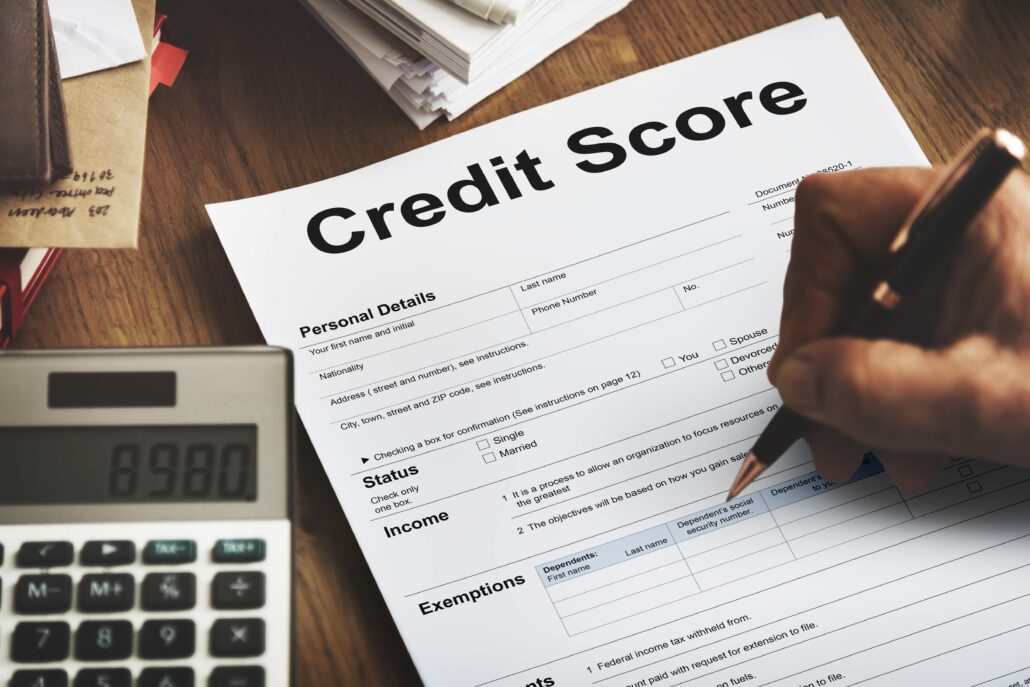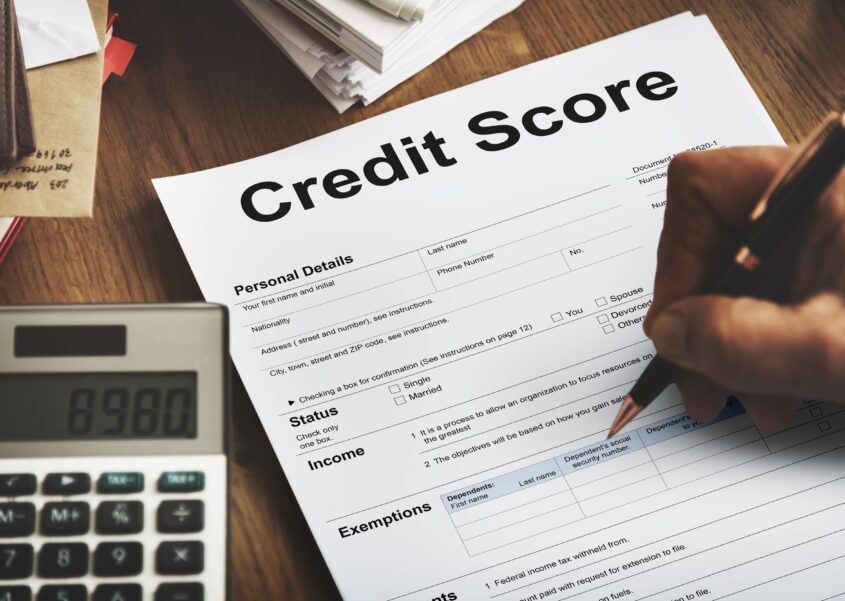How To Get A Loan With Bad Credit
Last updated on October 1st, 2024 at 12:51 pm
Getting a loan when you’ve got bad credit can feel like an uphill battle. It’s easy to think that once your credit score takes a hit, your options are limited. But the good news is that having a less-than-perfect credit score doesn’t mean you’re completely out of luck. There are still ways to get the funds you need, and it’s not as complicated as you might think.
At One Stop Money Shop, we get it—life happens, and credit scores don’t always tell the full story. We’re here to help people like you who might have been turned away by traditional lenders. Whether it’s an unexpected expense, a shortfall before payday, or just needing a little extra to get by, we specialise in short-term loans designed with your situation in mind. In this guide, we’ll walk you through how you can still get a loan, even with bad credit, and what steps you can take to make it happen.
Let’s dive into how you can turn things around and find the right loan to fit your needs—even when your credit score isn’t quite where you want it to be.
Understanding Bad Credit
Bad credit can feel like a dark cloud hanging over your finances, but what does it actually mean? Simply put, a bad credit score is a numerical representation of your credit history, and it’s influenced by things like missed payments, high credit card balances, or even just having limited credit history. Scores usually range from excellent to poor, and if you’re on the lower end, traditional lenders may see you as a higher risk.
Bad credit isn’t just a simple label; it’s a reflection of your financial history that plays a significant role in how lenders perceive your reliability as a borrower. Credit scores typically range from 300 to 850, and anything below 580 is usually classified as “poor” or “bad.” Your credit score is calculated based on various factors, including your payment history, the amount of debt you owe relative to your credit limits, the length of your credit history, the diversity of your credit types, and the number of recent credit inquiries. A history of missed or late payments can weigh heavily on your score, as it signals to lenders that you may struggle to meet your financial obligations. Similarly, carrying high balances on your credit cards compared to your available credit limits can suggest that you are financially overextended, further dragging down your score.
What Is A Bad Credit Score?
Credit scores are categorised differently depending on which credit agency you check with, and each agency has its own definitions for what constitutes very poor, poor, and fair credit.
TransUnion defines a very poor credit score as anything between 0 and 550. This range indicates a high risk of default and suggests severe credit issues like missed payments or defaults. A score between 551 and 565 is considered poor, reflecting a history of late payments or high credit utilisation. If your score falls between 566 and 603, it’s seen as fair, indicating some credit missteps but showing potential for improvement.
Equifax categorises scores below 300 as very poor, usually signalling significant financial difficulties such as defaults or bankruptcies. If your score is between 301 and 579, it is considered poor, often due to frequent late payments or high debt levels. Scores between 580 and 669 fall into the fair category, showing a moderate level of credit risk but also a mix of responsible and problematic credit behaviours.
Experian views credit scores below 560 as very poor, which often reflects serious financial problems like missed payments and high debt. Scores from 561 to 720 are considered poor, suggesting an unreliable payment history and some credit challenges. Scores between 721 and 880 are categorised as fair, indicating that while there have been some credit issues, there is also evidence of responsible credit management.

How Can You Have A Bad Credit Score?
A critical factor is the length of your credit history, which considers how long you have been using credit and managing your accounts. For those who are new to credit, the lack of a long track record can be a disadvantage, as lenders prefer to see a history of responsible borrowing and repayment. Even the types of credit you use matter—having a diverse mix of credit cards, instalment loans, and mortgages is generally viewed more favourably than relying on just one type of credit. Lastly, applying for new credit too frequently can hurt your score, as it indicates that you might be in financial trouble or taking on more debt than you can handle.
There are many reasons why someone might end up with bad credit, and it’s often not just a matter of poor financial management. Missed or late payments are one of the most common causes and can happen to anyone, especially when unexpected life events like job loss, illness, or sudden expenses disrupt your ability to keep up with bills. High credit card balances also contribute significantly to lower credit scores, as using more than a third of your available credit can signal to lenders that you are struggling financially. More severe credit issues, such as defaulting on loans or filing for bankruptcy, can leave a lasting mark on your credit report, making it difficult to qualify for loans for years.
Even something as simple as having limited credit history can work against you. If you’ve never taken out loans or used credit cards extensively, there’s little evidence of how you manage credit, which makes lenders cautious about extending you new credit. Mistakes on your credit report or instances of identity theft can also unfairly damage your score, creating barriers to borrowing that are difficult to navigate.
How Can A Bad Credit Score Affect Loan Eligibility?
When you have bad credit, traditional lenders like banks and credit unions often see you as a higher risk. They often rely heavily on credit scores to assess whether you’re likely to repay a loan on time, and a lower score often triggers immediate concerns about your ability to manage debt responsibly. This can lead to outright loan denials, as many traditional lenders have strict criteria that exclude applicants who fall below a certain credit threshold. Even when loans are approved, the terms are typically less favourable, with higher interest rates and more stringent repayment conditions that reflect the perceived risk of lending to someone with bad credit. This not only makes borrowing more expensive but also more challenging to manage, as the higher costs can further strain your financial situation.
It’s a frustrating cycle: you need a loan to cover an unexpected expense or to manage cash flow, but your bad credit makes it hard to get approved. And the more you’re turned down, the more disheartening it feels, as each rejection is a reminder of your financial past. However, having bad credit doesn’t have to mean the end of the road when it comes to borrowing. Short-term loans, like those offered by us, provide an accessible alternative for those who have been locked out of traditional lending. Unlike conventional banks that focus heavily on your credit score, short-term lenders look at the bigger picture, considering your current financial situation, income, and ability to repay, rather than just your past mistakes.
This approach allows lenders like One Stop Money Shop to extend credit to individuals who may have been turned away elsewhere, offering a lifeline when you need it most. Short-term loans are typically easier to qualify for, require less paperwork, and have faster approval times, making them a practical solution for those with bad credit who need quick access to funds. By focusing less on credit scores and more on current finances, these loans provide a valuable option for managing emergencies or bridging financial gaps when other doors have been closed.

Tips for Improving Your Loan Approval Chances
Securing a loan with bad credit isn’t just about finding the right lender—it’s also about presenting yourself as a responsible and reliable borrower. Whilst your credit score is one aspect of your financial picture, there are other ways you can improve your chances of approval. By taking a few proactive steps, you can demonstrate to lenders that, despite past credit issues, you are capable of managing a loan responsibly.
Show a Stable Income
One of the most powerful factors that can work in your favour when applying for a loan with bad credit is showing that you have a stable and consistent income. Lenders want to see that you have a reliable source of funds to make your repayments, and a steady income provides reassurance that you can meet the loan terms. This is particularly important for short-term loans, where the lender’s primary concern is whether you can repay the borrowed amount within the agreed timeframe. Even if your credit score is low, having a regular income from employment, self-employment, or other verified sources can significantly boost your approval chances.
If possible, provide documentation that reflects the consistency of your income, such as recent pay stubs, bank statements, or tax returns. The more you can prove that your income is dependable, the more confident the lender will feel in extending credit to you. It also helps if your income comfortably exceeds your monthly expenses, as this indicates that you have the financial room to handle the additional obligation of a loan. Remember, we consider your overall financial health, so demonstrating stability in your earnings can help offset the impact of a lower credit score.
Borrow Only What You Need
Another key tip for improving your loan approval chances is to borrow within your means. While it might be tempting to request a higher loan amount as a financial cushion, borrowing more than you genuinely need can make it harder to secure approval and manage repayments. Lenders prefer borrowers who show restraint and responsibility, as it indicates that you are thinking carefully about your ability to repay. When you only borrow what you need, it not only increases your likelihood of approval but also makes it easier to manage your repayments, which is a crucial factor in rebuilding your credit over time.
Before applying, take a realistic look at your financial needs and calculate exactly how much you require to cover your expenses. Be specific about the purpose of the loan, whether it’s to cover an unexpected bill, repair a vehicle, or manage a temporary cash flow gap. Being clear and intentional about your borrowing needs demonstrates to the lender that you are responsible and not overextending yourself financially. At One Stop Money Shop, this approach is valued and can help you secure the loan you need without added financial stress.
Consider a Guarantor Loan (If Applicable)
For some borrowers with particularly poor credit histories, adding a guarantor to your loan application can improve your chances of approval. A guarantor is someone—typically a friend or family member—who agrees to take on the responsibility of repaying the loan if you are unable to. This additional security reduces the risk for the lender and can make them more willing to approve your application or offer better terms. However, it’s important to discuss this option carefully with your potential guarantor, as they are legally responsible if you default on the loan.
That said, it’s worth noting that One Stop Money Shop’s short-term loans are designed to work without the need for a guarantor. The focus is on your current ability to repay, not solely on your credit history or whether you can provide additional security. This makes the process simpler and more accessible, allowing you to obtain the funds you need without involving others. Whilst having a guarantor can be helpful in some cases, we are committed to providing straightforward lending solutions that don’t require this extra step.
What Can I Use A Loan For With Bad Credit?
You can use a loan for various purposes, especially when you’re dealing with poor credit, as it provides much-needed flexibility. Here are some common reasons people take out loans, even with bad credit:
Covering Emergency Expenses: Unexpected expenses, like urgent car repairs or medical bills, can pop up when you least expect them, and not everyone has the savings to cover these sudden costs. A loan can be a lifeline in these situations, providing the funds needed to handle essential expenses without delay.
Funding Home Improvements: Renovating or upgrading your home can be a significant expense, but it’s often necessary to maintain or increase the value of your property. If you don’t have the cash upfront, a loan can help you spread the cost of these improvements, making it easier to manage financially.
Buying a Car: Whether you need a car for commuting or personal use, purchasing a vehicle outright can be a considerable financial burden. A loan can help break down the cost into manageable payments, allowing you to get the car you need without putting a strain on your immediate finances.
However, it’s crucial to approach borrowing with caution, especially if you already have a poor credit history. Missing repayments can further damage your credit score, making future borrowing even more difficult. It’s always wise to weigh your options carefully before taking out a loan. If you have savings that can cover the cost, it might be better to use those instead.

Steps to Get a Loan with Bad Credit
Step 1: Assess Your Financial Situation
Before diving into the loan application process, it’s crucial to take a step back and thoroughly assess your current financial situation. Start by reviewing your monthly income, regular expenses, and any existing debts or obligations. This evaluation will help you determine exactly how much you need to borrow and, more importantly, how quickly you can realistically repay the loan. It’s tempting to borrow more than you need, especially if you’re dealing with financial stress, but it’s essential to be disciplined. Borrowing responsibly means taking only what you can afford to repay without stretching your finances too thin. This careful assessment will not only help you in choosing the right loan amount but also in selecting a repayment plan that aligns with your financial capabilities.
Taking the time to evaluate your finances also allows you to identify areas where you can cut back, making it easier to manage loan repayments. For example, you might spot unnecessary subscriptions, discretionary spending that could be reduced, or other ways to free up extra cash to put towards your loan. This proactive approach not only improves your loan application but also helps build financial habits that can support your long term credit health.
Step 2: Choose the Right Lender
The lender you choose plays a critical role in your borrowing experience, especially if you have bad credit. Traditional banks and large financial institutions often have strict lending criteria that focus heavily on credit scores, making it challenging for those with poor credit histories to get approved. However, not all lenders operate this way. It’s important to seek out lenders that understand the challenges faced by those with bad credit and are willing to look beyond just the numbers. One Stop Money Shop, for instance, specialises in helping individuals with bad credit access short-term loans by considering a broader view of an applicant’s financial situation, such as their income, current financial stability, and ability to repay.
Working with a lender that recognises the realities of bad credit can make the difference between constant rejection and finding a loan that works for you. Look for lenders that prioritise flexible terms, clear communication, and a commitment to responsible lending. This approach not only increases your chances of approval but also ensures that you’re dealing with a lender that has your best interests in mind. The right lender will not just provide the funds you need but will also offer guidance and support, helping you navigate the repayment process smoothly.
Step 3: Prepare Your Application
Preparation is key when applying for a loan with bad credit. Whilst short-term lenders often have simpler requirements compared to traditional banks, being well-prepared can streamline the process and improve your chances of getting approved. Start by gathering all necessary documents, including proof of income such as recent payslips or bank statements, identification like a driver’s licence or passport, and any other documents that can demonstrate your ability to repay the loan. Having these documents ready not only speeds up the process but also shows the lender that you’re serious and organised, which can positively influence a decision.
It’s also helpful to have a clear understanding of how much you want to borrow and why. Lenders appreciate applicants who are transparent about their needs, as it allows them to tailor the loan to fit your specific circumstances. By presenting a well-prepared application, you position yourself as a responsible borrower who has taken the time to understand their financial needs and is committed to repaying the loan as agreed.
Step 4: Be Honest About Your Credit History
Honesty is crucial when applying for a loan, especially when you have bad credit. Whilst it might be tempting to downplay or omit details about your financial past, being upfront about your credit history can actually work in your favour. Lenders like us are accustomed to working with individuals who have faced financial difficulties, and we appreciate transparency. Being honest about your past mistakes, such as missed payments or defaults, allows the lender to better assess your current situation and offer terms that reflect your circumstances.
Moreover, transparency helps build trust between you and the lender, which can lead to a more positive borrowing experience. If a lender understands the reasons behind your bad credit, they may be more willing to provide a loan that meets your needs without imposing overly harsh terms. Remember, the goal is not to hide your past but to demonstrate that you are now in a better position to manage your finances and repay the loan responsibly.
Step 5: Choose a Lender You Trust
Selecting a trustworthy lender is one of the most important decisions you’ll make when seeking a loan, particularly if you have bad credit. Trust isn’t just about finding a lender with a good reputation; it’s about feeling confident that they genuinely have your best interests at heart. Look for lenders who are transparent about their terms, fees, and conditions, and who are clear in their communication. Avoid those that seem overly focused on getting you to borrow without thoroughly assessing your financial situation or explaining the repayment terms.
A trustworthy lender will take the time to understand your unique circumstances, including your income, financial stability, and any challenges you’ve faced in the past. They should offer clear, straightforward advice and be willing to answer all your questions, no matter how small. This open communication helps ensure that you fully understand your loan agreement and that there are no hidden surprises down the road.
When you work with a lender you trust, you’re not just getting a loan; you’re building a relationship. This relationship should feel supportive, with the lender acting as a partner in your financial journey, offering guidance to help you manage repayments and improve your overall financial health. Trustworthy lenders prioritise responsible lending practices, ensuring you don’t borrow more than you can handle and setting you up for success in repaying your loan comfortably. By choosing a lender you can rely on, you’re taking an important step towards managing your finances wisely and building a more secure future.
Why Choose One Stop Money Shop for Your Short-Term Loan?
When you have bad credit, finding a lender who understands your situation and offers a fair chance can feel like a breath of fresh air. One Stop Money Shop stands out as a trusted lender for those with bad credit, offering accessible, responsible short-term loans that are tailored to meet your needs. Here are some key reasons why choosing One Stop Money Shop could be the right decision for you:
One of the main advantages of working with One Stop Money Shop is the speed and ease of the application process. Unlike traditional lenders who often have long, drawn-out approval procedures, One Stop Money Shop is designed to deliver fast decisions, very often on the same day. This quick turnaround time means that you won’t be left waiting and wondering whether you’ll get the funds you need. The application is simple and straightforward, with no hidden hoops to jump through, allowing you to focus on what matters—getting access to cash when you need it most.
One Stop Money Shop also sets itself apart by focusing on borrowers with bad credit. Instead of letting past financial mistakes define your ability to borrow, this lender looks at the bigger picture. We assess your current financial situation, including your income and overall ability to repay the loan, rather than solely relying on your credit score. This approach opens doors for many people who have been turned away by traditional lenders, giving them a chance to access the funds they need without being unfairly penalised for their past.
Flexibility is another cornerstone of our lending philosophy. We offer a range of loan amounts and repayment terms, allowing you to choose an option that fits comfortably within your budget. Whether you need a small loan to cover a short-term gap or something larger, we provide the flexibility to tailor your loan to your circumstances. Our commitment to responsible lending ensures that you’re not taking on more than you can handle, which is crucial when working to improve your financial health.
Lastly, we are committed to transparent and responsible lending practices. There are no hidden fees, confusing terms, or unexpected surprises; everything is laid out clearly from the start. This level of transparency helps you make informed decisions about borrowing and gives you peace of mind knowing exactly what to expect.
If you’re ready to explore your loan options, One Stop Money Shop is here to help. With a focus on fast approvals, flexible terms, and a commitment to supporting those with bad credit, One Stop Money Shop makes getting a short-term loan straightforward and stress-free. Apply online today and take the first step towards the financial support you need.





Leave a Reply
Want to join the discussion?Feel free to contribute!